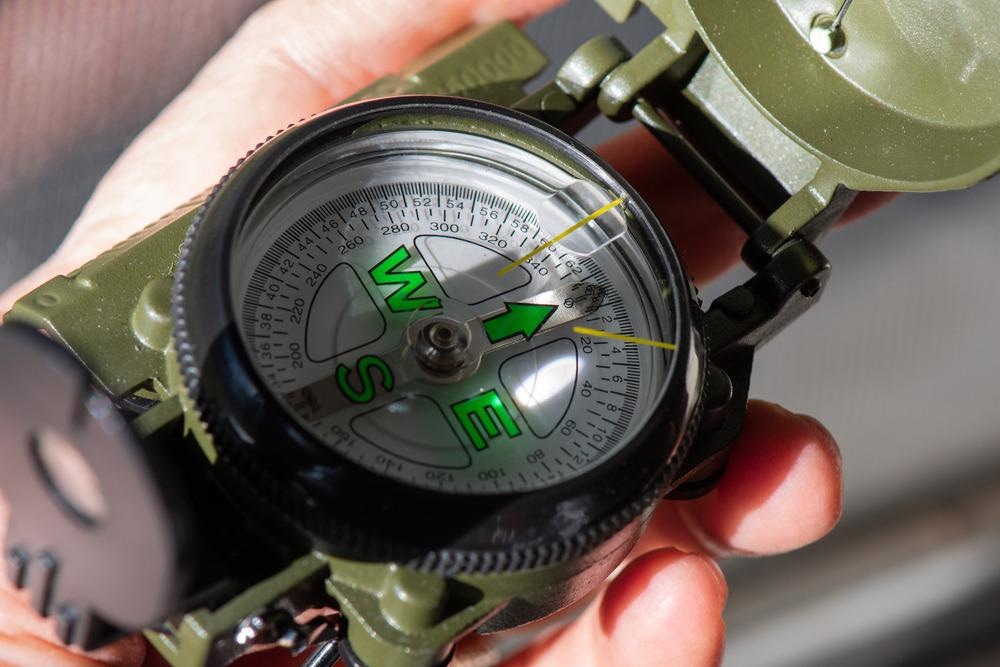From orbits around Earth to below-surface operations and even the smartphone in your pocket, magnetometers have an incredibly wide range of applications.

Image Credit: Diane N. Ennis/Shutterstock.com
Most bodies in space, including the Earth, the moon, and distant stars, possess a magnetic field, and scientists seeking to measure the strength of these fields use a device called a magnetometer.
Magnetometers also have much more down to Earth applications, helping scientists determine if a material is magnetized, or to calibrate both permanent magnets and electromagnets.
What are Magnetometers?
Put simply, a magnetometer is a device that is capable of measuring magnetic induction - the intensity of a magnetic field. Though this may sound disarmingly straightforward, because of the sheer ubiquity of magnetic fields the magnetometer plays a vital role in research, development, and measuring the magnetic field of Earth for navigation both on the planet’s surface and hundreds of miles above it.
The first magnetometer is believed to have been created by German scientist Carl Friedrich Gauss in 1832. The proto-magnetometer was little more than a magnet suspended by a light fiber.
Gauss would use this rudimentary setup to devise his law of magnetism, which states that the magnetic flux across any closed surface is zero and that no magnetic monopoles exist.
Because recent developments have allowed for the miniaturization of micrometers, they can now be incorporated into integrated circuits at little cost. This has led to a massive increase in the range of technology in which they are found.
In a 2017 book entitled Space Microsystems and Micro/Nano Satellites, the authors write: “[The magnetometer] is an important sensor component in all types of aircraft and spacecraft. It also has been widely used in other fields, such as industry, agriculture, national defense, as well as biology, medicine, aerospace, interplanetary research, etc.
Currently, almost no field of technology is immune from magnetic field measurement.”
Different Types of Magnetometers
Magnetic fields are defined by vectors, meaning they have strength and direction. Some magnetometers measure the direction and strength of a magnetic field at a particular location and how this changes.
An example of this would be a compass, which measures these direction and strength components and are known as vector magnetometers.
Other magnetometers simply measure the magnitude of this vector quantity, which is known as a scalar. These magnetometers are called total field or scalar magnetometers.
How Magnetometer Works - Animation || The Hall Effect & Lorentz Force
Video Credit: Tanishq/Youtube.com
Other magnetometers vary by whether they are fixed or stationary, or whether they are portable and can be used while in motion.
The authors of Space Microsystems and Micro/Nano Satellites write: “Some magnetometers’ physical effects are the same, but they are different in their detection method, which is because the magnetic field measuring methods are built on the basis of various physical effects and physical phenomena related to the magnetic field.
“There are dozens of methods to measure the magnetic field at present.”
What Are Magnetometers Used For?
Magnetometers are currently used in an incredibly diverse and wide-ranging variety of fields.
Possibly the most “everyday” application of magnetometers is in smartphones that contain microelectromechanical systems (MEMS). These help smartphones identify their orientation and the way they are held, as well as the elevation at which they sit.
The authors of Space Microsystems and Micro/Nano Satellites explain the usefulness of micrometers in navigation. They write:
In the field of aeronautics, the magnetometer can be used to measure the geomagnetic field vector information of the position of the aircraft body, such as airplanes and satellites.
“And, according to the reference model for the Earth’s magnetic field and local magnetic field, the angle information of a certain precision can be obtained through an algorithm, therefore, the magnetometer is widely used in aircraft attitude determination systems, especially in microsatellites, such as nanosatellites and picosatellites.”
One of the most common uses of magnetometers is in navigational systems that range from orbit around the planet to its surface, and even beneath the waves.
Magnetometers also have a wide range of geological applications, which include mapping hazards in coal mining, conducting surveys, and directing drilling for oil and gas. These devices can also pick up magnetic anomalies that are caused by mineral deposits.
Seeking treasures buried beneath the surface of the Earth with magnetometers isn’t just limited to industry. Individual users can also employ them as an alternative to “traditional” metal detectors.
Magnetometers Vs Metal Detectors: What is the Difference?
The key difference between a metal detector and a magnetometer is the former finds metal only while it is nearby, while the latter detects magnetic fields over greater distances.
Though a magnetometer could be and often is used to create a metal detector, most are created by using electric currents. These metal detectors are only capable of detecting any metal that can conduct electricity, in other words, any ferrous metals. This includes materials like steel and iron and even carbon.
Though all conductors are magnetic, not all magnets are conductors. This means that a magnetometer will pick up materials that are magnetic but not conductors.
Another factor that influences whether a magnetometer or an electrical metal detector is the better option is the distance at which the sought-after metal is located.
A magnetometer metal detector will pick up much more distant metals, whereas an electric metal detector will function better when up close and personal to the sought-after metal.
More from AZoQunatum - MilkyWay@home: Galaxy Shredded By Milky Way Reconstructed By Volunteer Computer
References and Further Reading
You. Z., [2017], “Space Microsystems and Micro/Nano Satellites,” Micro and Nano Technologies. https://www.elsevier.com/books/space-microsystems-and-micro-nano-satellites/you/978-0-12-812672-1
Techniques: Metal Detectors and Diver Magnetometers, 3H Consulting, [2016], [http://www.3hconsulting.com/techniques/TechMetalDetector.html]
Disclaimer: The views expressed here are those of the author expressed in their private capacity and do not necessarily represent the views of AZoM.com Limited T/A AZoNetwork the owner and operator of this website. This disclaimer forms part of the Terms and conditions of use of this website.